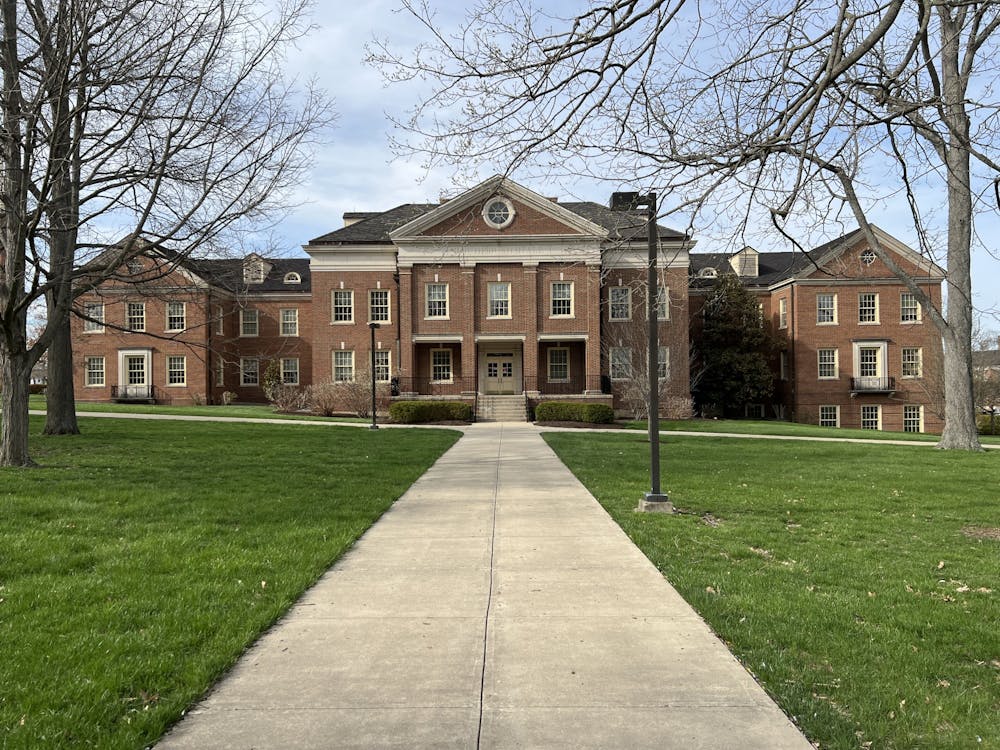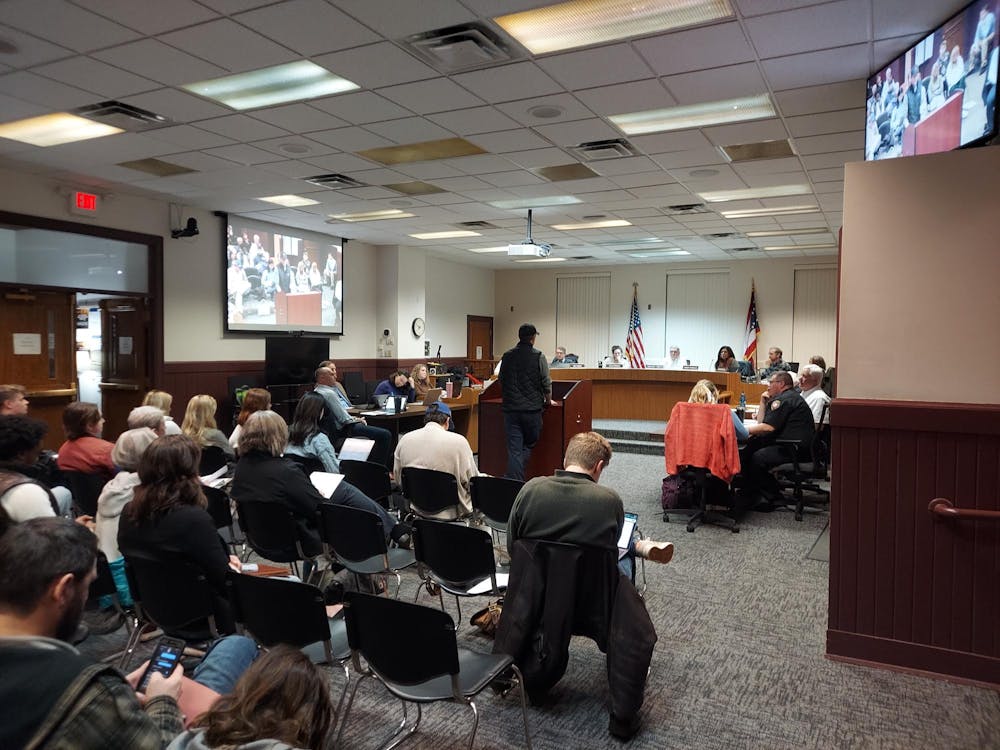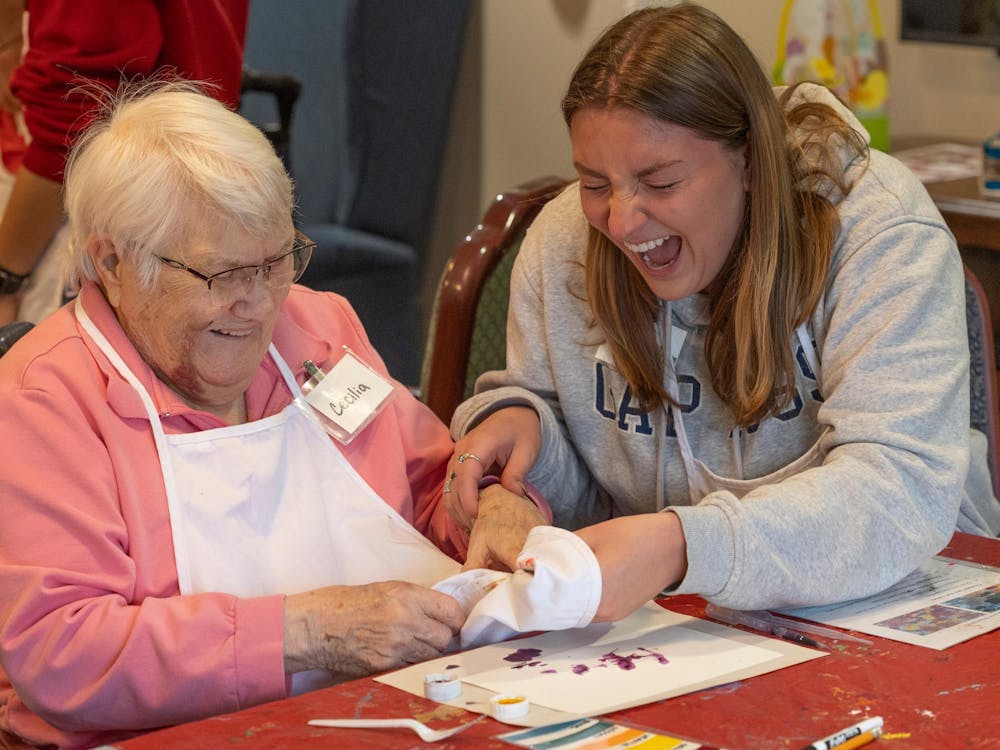New emails obtained by The Miami Student in its continued reporting on the wrongful death lawsuit against Miami University show that one administrator shared resources for the Family Medical Leave Act (FMLA) with Bill Knight when he brought up concerns about his health.
In early April, Miami, its Board of Trustees, former provost Jason Osborne, associate vice president for Academic Personnel Ruth Groom, and associate vice president for Budget and Analytics Lindsay Carpenter were named as defendants in a lawsuit following Knight’s death by suicide in 2021. The lawsuit alleges that the university and its administrators are responsible for creating the conditions that led to Knight’s death.
Ruth Groom, associate vice president for academic personnel, was accused in the lawsuit of “intentionally delay[ing]” Knight’s application for medical leave under the Family Medical Leave Act (FMLA). However, an email from March 18, 2021, shows Groom showed concern for Knight’s health and provided FMLA information for him.
She also checked on the status of Knight’s FMLA application multiple times after he submitted it.
Click here for an updated timeline of events
Groom emailed Knight and his coworker, Mollie Miller, on March 15, 2021, about inconsistencies in data on the number of professors in various departments.
On March 16, Knight responded that he was “profoundly sorry” and added, “I am very sorry that the health challenge I have been experiencing has affected my performance and consequently caused problems for several people including you.”
On March 18, Groom responded to Knight individually.
“Let me begin by first stating that I am sorry to hear that you have been having some health challenges,” Groom wrote. “I wanted to share with you the link to apply for FMLA, in case the challenges you are facing result in the need for you to apply for FMLA leave.”
Groom then linked the application form, as well as the university policy on FMLA.
Knight revealed in another email that day that he applied for FMLA on March 17. In a March 18 email, a staff member in HR responsible for coordinating medical leave confirmed that she had received his application and said Knight’s physician would need to provide medical certification. Once HR received his medical certification, it would take up to five business days for the HR department to approve the leave.
In an email to The Miami Student, Alecia Lipton, associate director of media relations, confirmed that a request needs to be received and reviewed by HR to start the FMLA process. Academic personnel will inform the faculty or staff member that they’ve met the eligibility requirements and request a medical certification from them and their physician.
Enjoy what you're reading?
Signup for our newsletter
“Once HR/Academic Personnel have the form from the physician’s office, it is reviewed for completeness and to be sure it meets the requirements of FML,” Lipton wrote.
Angela Wallace, the lawyer for Knight’s widow, Adriene Knight didn’t respond when asked for more information on the lawsuit’s claim that Knight’s FMLA “application was intentionally delayed by Groom.”
According to the emails, Knight sent his medical certification form to his physician that day, but he didn’t hear back from her until March 23. At that point, his physician informed him that it could take up to 10 business days to get the form back to HR. The HR department informed Knight that day that his physician had 15 days to return the form, but if he took time off for his FMLA-related condition before being approved, it could retroactively apply.
On March 30, Groom followed up with HR to ask whether Knight’s leave had been approved yet and was told the university hadn’t received the paperwork yet.
On March 31, Knight updated HR that his physician had filled out the forms but failed to sign them and wouldn’t be back in the office until the following Monday, April 5. This put him past the 15-day window, but a staff member in HR responded the next day and wrote, “I’ll continue to keep an eye out for the paperwork. That should not be a problem.” The staff member added that he could submit his leave report or take time off as sick without FMLA notation.
“If an employee has sick time available in their leave bank, they can use the sick time prior to the 15-day FML window as well, as it is their accrued sick time,” Lipton wrote.
On April 5, Groom again emailed HR to check the status of Knight’s FMLA.
“The physician was out of the office last week,” HR responded, “so we are giving a little more time past the 15 days.”
Two days later, Knight died by suicide.
Additional reporting by Senior Campus & Community Editor Alice Momany




